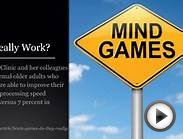 Psychologists have many skills and provide many different types of services.
Psychologists have many skills and provide many different types of services.
Clinical Psychologists provide counseling and psychotherapy. They work with people who have life adjustment problems, and also with those who have emotional disorders or mental illness. They provide treatment for people of all ages and to families and to groups. Psychologists provide treatment for depression, anxiety, phobias, panic disorders, eating disorders, stress related problems, relationship problems, and severe mental disorders.
Clinical Psychologists provide diagnostic assessment or "testing" services. Using interviews, questionnaires, and measurement tools, they can chart an individual's skills, personality features and personality style, emotional status and emotional style, or problems they may be having in adjusting to life. These measurements are often essential for clarifying the diagnosis of a mental illness or an addiction.
Educational Psychologists, School Psychologists, and Clinical Psychologists provide "psychoeducational" testing. With the use of IQ tests and tests of academic aptitude and achievement, they can identify academic strengths and weaknesses. Sometimes these tools are used to identify "gifted" students, and sometimes they are used to identify specific learning disorders or developmental learning problems. Evaluations relating to learning issues also frequently involve the assessment of Attention Deficit Disorder (ADD) or Attention Deficit, Hyperactivity Disorder (ADHD).
Health Psychologists and Clinical Psychologists seek to understand the relationship between medical complaints and psychological factors. They assist in preparing patients to cope with surgery and to adjust to medical problems. They work with patients who are having difficulty meeting the social and emotional demands of their medical treatment. They also provide treatment to individuals whose medical problems are related to psychological and emotional factors, or who are suffering from chronic pain.
Neuropyschologists diagnose mental and behavioral problems that are related to brain injuries. Using precise tests of mental functioning, they can determine how the brain is functioning and how and where it might have been injured as a result of trauma.
Forensic psychologists provide consultation to Courts and attorneys in all different types of legal proceedings. Many work as experts in the area of criminal law. Others provide expertise in personal injury suits, sexual harassment cases, child custody matters, and workers compensation cases.
Organizational Psychologists focus on the productivity of groups and individuals in the workplace. They work to improve the functioning of organizations, and to promote the health of individuals within the organization. They also conduct research on "human factors" or the interaction between people and machines.
Sports Psychologists provide training to enhance the performance of teams and individual competitors.
Source: psyris.com

|
BABYBJORN Baby Carrier Original, Black, Cotton Baby Product (BABYBJORN)
|
You might also like:




|
Adult Dyslexia Guide Mobile Application (bigo)
|


















When using this website please use common sense. The information provided on this site is intended for your general knowledge only and is not a substitute for professional advice. The information on this website is not intended to diagnose, treat, cure or prevent any disease. Never disregard medical advice or delay in seeking it because of something you have read on the Helpfulbox site.
When using this website please use common sense. The information provided on this site is intended for your general knowledge only and is not a substitute for professional advice. The information on this website is not intended to diagnose, treat, cure or prevent any disease. Never disregard medical advice or delay in seeking it because of something you have read on the Helpfulbox site.